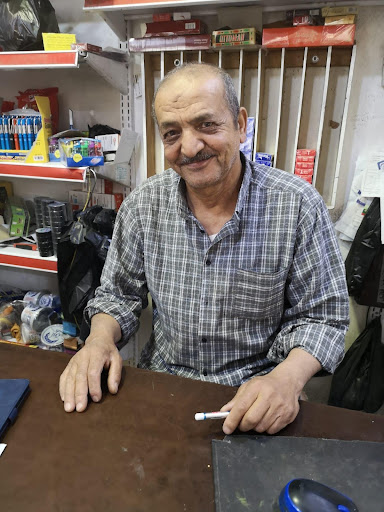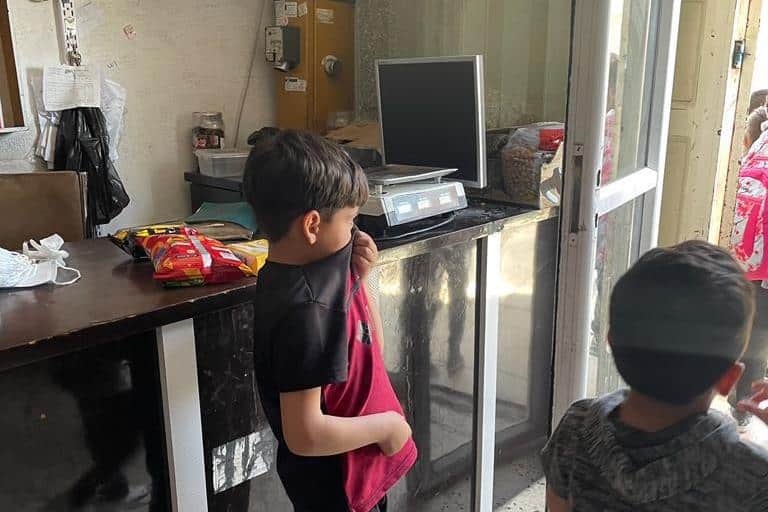On Monday 15 May, which happened to be Nakba Day1, the tear gas came even more thick and fast than usual as the children left school in al Khalil/Hebron, Palestine. The checkpoint was closed so it was hard to get away when the tear gas fell close by. Many children took refuge in the sweet shop by the checkpoint as did we members of CPT. Musbah, the shopkeeper, closed the doors until the gas dispersed.
On Tuesday, we heard that his youngest son, aged 17, had been arrested that day and taken away by Israeli occupation soldiers at the checkpoint. He was meant to appear in court on Wednesday but his court date has been postponed. No one knows what the charge is.
On Wednesday after monitoring the checkpoint for the morning schoolchildren, we stopped by and chatted with Musbah. His small business doesn’t provide him with an adequate living wage through sales of food, toiletries, and household goods, but he does offer shelter as well as sweets to the passing school kids.
Musbah told us that he’s lived in the apartment above the shop his whole life. Things have gotten harder and harder as Israel has imposed more and more restrictions like checkpoints and road closures. The checkpoint is sometimes closed for up to three hours at a time. There has been no relief since the Six-Day War in 1967, especially since the adjacent checkpoint became permanent in 2012. In 2003, the house opposite Musbah’s was blown up because the inhabitants were accused of attacking soldiers. Musbah’s own shop was so severely damaged that he had to keep it closed for four months. The shop has also been raided several times. Fortunately, he now has security cameras installed to see when trouble approaches. But he only opens half of the double doors, for safety.

Musbah has several older married children. Normally they would have lived together in his family building and helped with the business, but because he feared for them and their families, he sent them to live in safer parts of town. Now, at 66, he relies on them for support.
So happened later that day on Monday? Musbah had gone upstairs for a few minutes to pray, leaving his teenage son to keep an eye on the shop. The tear gas started again in front of the shop, no one seems to know why. Soldiers arrived at the shop and ordered the boy outside, but there was a lot of tear gas and he couldn’t breathe or move, so the soldiers came for him instead. He is now in prison waiting for a hearing without knowing the charges against him.
Of course, living with this reality is bad for Musbah’s existing heart problem. His wife hasn’t slept for two nights. It is impossible for them to travel the distance, through checkpoints, to Ramallah to be there for their son.
The community is seeking lawyers to defend this young man.
Meanwhile, Musbah keeps the shop open as ever, and has a smile for all the children who pass through.
1Nakba Day is 15th May; it commemorates the displacement of 700,000 Palestinians when Israel was established in 1948.




